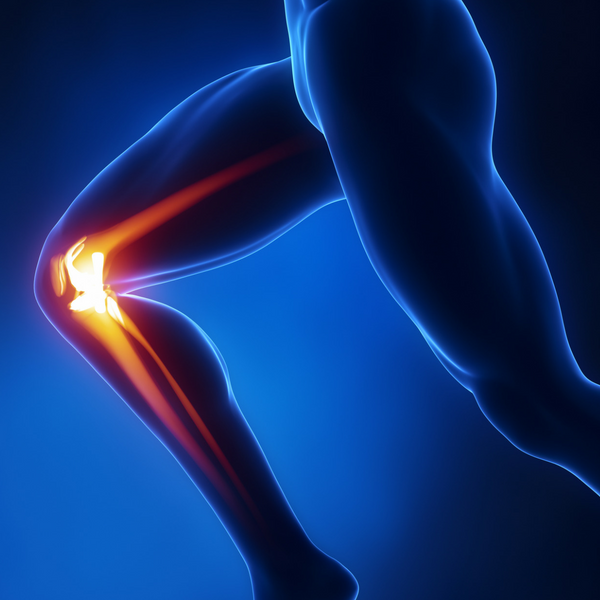Knee injuries are extremely common. These ailments occur when you damage muscles, tendons, cartilage, or ligaments. Osteoarthritis is the most common knee disease, in which the cartilage is gradually worn away. In regards to injuries, torn ligaments are one of the most common knee injury causes – with the ACL & MCL in particular. The number of children and teenagers with serious knee injuries is rising and health officials have declared it a “significant public health issue.” If you suspect that you have damaged a knee ligament, here’s what you need to know about tearing your ACL & MCL.
What are Your ACL & MCL?
Ligaments are strong bands of tissue that connect bones to one another. There are four ligaments that stabilize the knee by connecting the femur (thigh bone) to the tibia (shin bone). These crucial ligaments work together in pairs to secure the knee from all sides.
The anterior cruciate ligament (ACL) and the posterior cruciate ligament (PCL) cross over one another to create an “X” shape. This prevents the knee joint from sliding forwards or backwards. Meanwhile, the medial collateral ligament (MCL) and lateral collateral ligament (LCL) protect the knee from buckling by preventing the knee from moving side-to-side.

Tearing Your ACL
A tear of the knee anterior cruciate ligament (ACL) is one of the most commonly occurring injuries in sports. These injuries result from quick changes of direction, sudden stops or jumps. An audible “pop” of the knee, swelling, and immense pain can typically determine a tear.
A physical examination can usually determine the diagnosis of a torn ACL. A physician will move the knee to assess the range of motion and whether the impairement of overall function exists. However, there are several other tests that may be used to determine the severity of the tear and whether any surrounding structures were damaged.
A minor tear might only require rest and physical rehabilitation, while some injuries are severe enough to require surgery. The purpose of rehabilitation is to strengthen the muscles enough to restore a full range of motion. This reduces swelling and pain in injured joints. Physical therapy may prove effective enough a treatment for those who don’t participate in vigorous physical activity.
Arthroscopic surgery is usually recommended for athletes who intend to continue playing or if multiple ligaments or cartilage is damaged. Paired with physical rehabilitation, athletes can return to their sports as early as 8 to 12 months.

Tearing Your MCL
Medial collateral ligaments tears occur when the outer edge of the knee is hit hard. For instance, like when athletes collide with one another. The impacted knee will stretch the MCL, which will tear if you push the knee too far beyond its limit or suddenly twist it. Football, hockey, and other high-contact sports players are at the highest risk of receiving MCL injuries.
MCL injuries are extremely painful. They can be categorized by the feeling of joints being “loose” or physically displaced. While one may be able to walk after sustaining an MCL injury, the knee feels unstable and may catch during movement. Diagnosing a torn MCL will involve a doctor pushing on the knee to determine how severe the strain or tear is. There are three grades of an MCL injury, ranging from a grade 1 (least severe) to a grade 3 (most severe). Doctors commonly preform MRI’s, X-rays and stress X-rays, which are visual scans to determine the severity.
An MCL sprain, a milder version of the injury, can often be healed on its own by keeping weight off of it and compressing the joint with a knee brace. Doctors may prescribe anti-inflammatory drugs, such as aspirin or ibuprofen, to reduce swelling. A severe MCL injury might take months to recover, but it rarely requires surgery to heal. Physical therapy is sufficient to heal a torn MCL by strengthening the leg muscles.
If you have injured your knee in the Southern California area, visit a walk-in clinic that is part of UrgentMED today! The friendly staff can determine whether you have a torn ACL or MCL. You will be on the road to recovery in no time.
